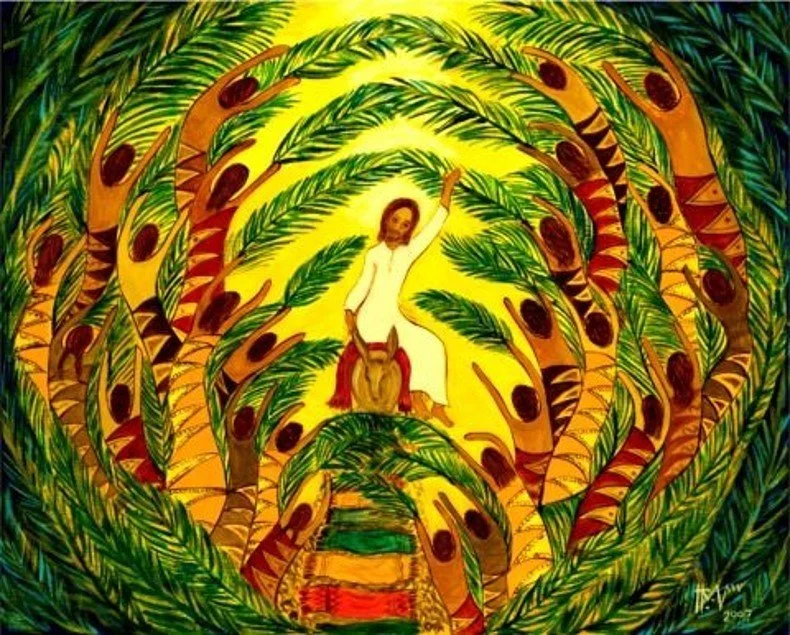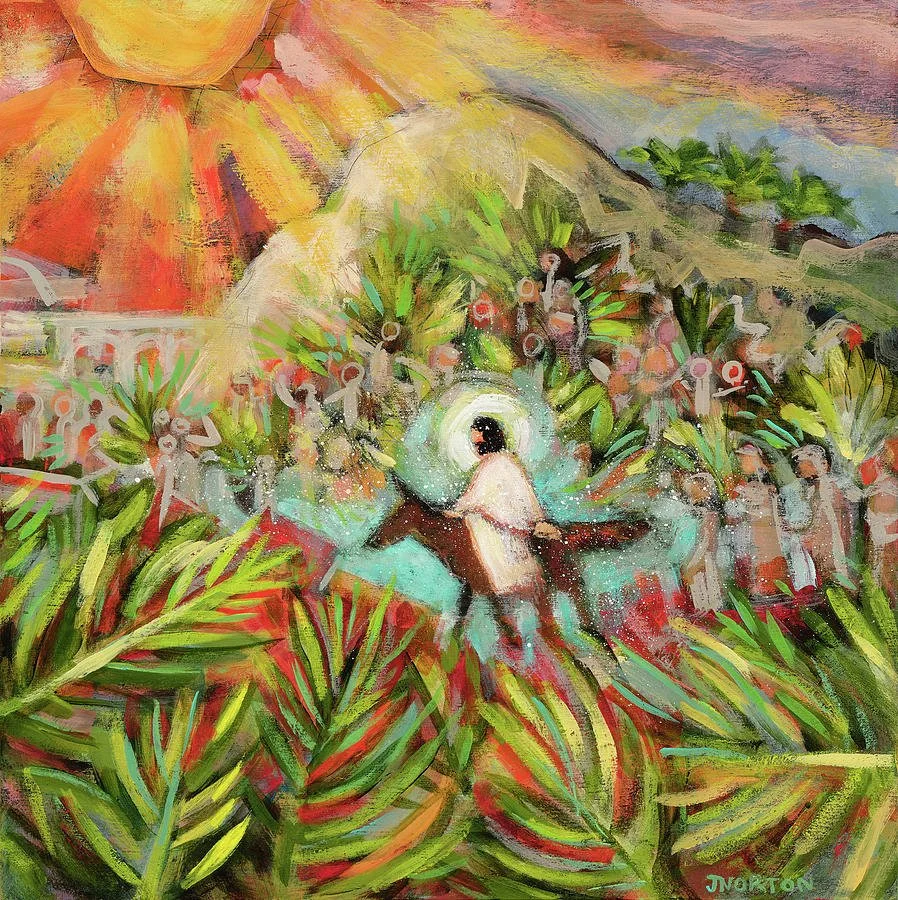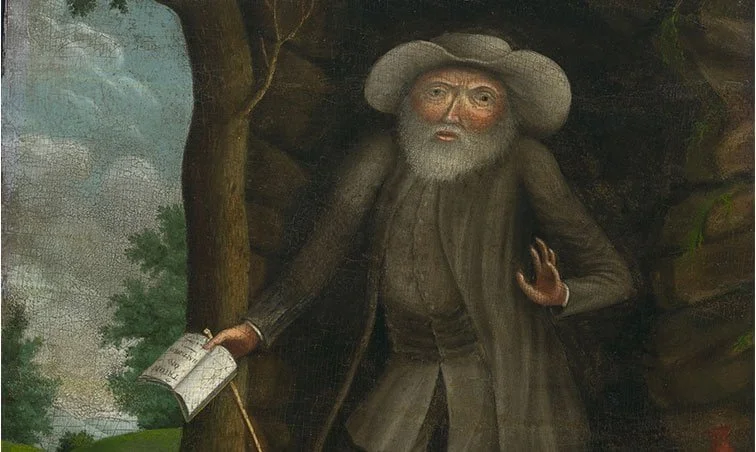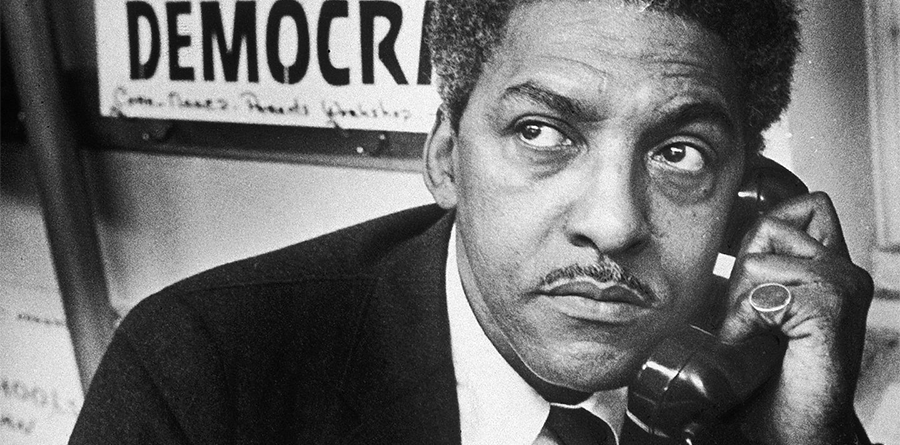Donkey Riding Angelic Troublemakers
Jesus’s Triumphal Entry into Jerusalem John 12:12-19:
The next day the great crowd that had come to the festival heard that Jesus was coming to Jerusalem. So they took branches of palm trees and went out to meet him, shouting,
“Hosanna!
Blessed is the one who comes in the name of the Lord—
the King of Israel!”Jesus found a young donkey and sat on it, as it is written:
“Do not be afraid, daughter of Zion.
Look, your king is coming,
sitting on a donkey’s colt!”His disciples did not understand these things at first, but when Jesus was glorified, then they remembered that these things had been written of him and had been done to him. So the crowd that had been with him when he called Lazarus out of the tomb and raised him from the dead continued to testify. It was also because they heard that he had performed this sign that the crowd went to meet him. The Pharisees then said to one another, “You see, you can do nothing. Look, the world has gone after him!”
I was a bit worried, this week, as I prepared for this message. Palm Sunday is one of my favorite Sundays on the church calendar. Why do I love it? It is the metaphor, the poetry, the political theatre, the revolutionary spark, the collective optimism. I would have loved to been in the crowd that day, when Jesus sauntered into Jerusalem on a donkey. But, the reason I was worried was because I was afraid I had nothing new to say. I was worried you’d feel like this was a rerun message.
But, sometimes in the Godly Play classroom an older child will complain that they’ve already heard the story to be told that day. Caryl, in her classically comforting way will ask a question, “I wonder what new thing you will hear today?”
So, rather than run from the urge to talk about Palm Sunday, I am going to lean into it. I did that this week while staring out the window of a cabin in the Cascade-Siskiyou mountains. I imagined myself in the crowd, having just ripped a palm branch off a tree. I nudged my way to the front to add my contribution to the welcome mat for Jesus. We paved the path for a new king as he walked it. I can imagine the intensity of that procession, of the fervor, the elation, the wondering, “What’s going to happen when it is clear that Jerusalem has given itself entirely to a new king? Will those in power simply leave?”
As we enter into Holy Week, I am, once again, struck by the narrative arc of the final days of Jesus. The story is building. The crowd is building. Palm Sunday feels like the first act. It is when, it seems, that the political unease about this Jesus fella in Jerusalem tips over into an emergency for those in power. Yes, they heard about the crowds Jesus was gathering in the rural parts, but now they are here, and the streets are clogged, and he is riding on a donkey and everyone is calling him the King.
There must have been a sense of momentum, of potential for a once radical movement to spark political and cultural upheaval, of the upside down kingdom to be realized, for the mighty to be cast down, and the lowly lifted up, for true justice, for release of financial worries, the year of Jubilee, unjust economic systems would come crumbling down!
And, as soon as I felt like I had reached the apex of this excitement, I felt the weight of the not so Good Friday, which we, on the other side of the story, know is coming. I imagined being that same person hearing about the horrific and public execution of everything I just said that had given me hope.
And I imagined still, being that same person, not one of Jesus’ closest people, but a hopeful follower, who hears some mysterious story that Jesus had been resurrected from the dead, and I can feel my own skepticism creep in. I can still feel the sting that at least, for a while, that even if Jesus had been resurrected, the movement still felt crushed.
Now, the movement would need to be built up from a smaller group again, they’d need to believe so fervently that Jesus was still leading a movement, even though the political revolution seemed to go the way of so many other revolutions…momentum lost after the assassination of its figurehead.
And we have the privilege of being on the other side of that story too, knowing that Christianity did succeed in political upheaval. Just a few hundred years after the death and resurrection Jesus we have the first proclamation of Christianity as the state Church of the Roman Empire. And, we know, that this marriage, almost instantly betrayed all of the hopes of Jesus for the movement that bears his name. The very streets that welcomed Jesus as a new King were filled with Crusaders a thousand years later, during the conquest of Jerusalem in 1099, where over 40,000 people were killed in the name of the Christian state.
There almost seems to be a wave like pattern to this in Christian history…were the size and influence of Christianity becomes so large and intertwined with structures of power that it has to crash, it needs to reset, to be humbled. Almost every monastic and mystic movement within the Church has been set off by this collapse.
Quaker Abolitionist Benjamin Lay
And, I cannot imagine how many more times we must hear of another school shooting, and then have to hear Christian politicians who squirrel away gun lobbyist money defend the 2nd amendment, and somehow conflate their love of God and country with weapons of murder, before the entire notion of Christian America must come crashing down too. If you ask me, if it happens today it will still have been few centuries too late.
It seems as if Jesus spent most of his life warning of the dangers of power. Jesus must know that empires will keep on empiring. The hope was that the Jesus movement would be working to subvert the power of Empires, and as a result, exposing the evil shallowness of it.
We gather as Quakers, a movement sparked partly in response to the abuses of the Church of England. That subversive Spirit has led us, as Friends, to undermine systems of state sanctioned violence and oppression, giving young people a way to escape the horrors of forced military service, and to undermine the practice of slavery, to name a few. And, while political activism was a part of that work, it was mostly clever, imaginative, and often times illegal activity that Friends agreed to participate in together.
Do we think that this type of prophetic witness is a thing of the past for us Quakers? I hope not, but, as we enter into Holy Week, and we experience the roller coaster ride of Palm Sunday to Good Friday to Easter, may we see in that narrative a people constantly working within the systems of power, living alongside it, but also in opposition to it. May we revel in the absurdity of a King riding a donkey. May we find in our tradition that permission to be a Holy Pain in the butt to Empires. May we pursue the leadings of God, even when they may require us to bear witness to the hypocrisy of powerful Christians who’ve given away their allegiance to idols of the American empire. Friend Bayard Rustin, a member at Fifteenth Street Meeting in New York City, and co-organizer of the March on Washington and the Freedom Rides reminds us that, “We need, in every community, a group of Angelic Troublemakers.”
Bayard Rustin
Some Queries:
As Quakers, we live in the legacy of Friends who operated under and against systems of oppression and violence. How are we currently being called to angelic troublemaking, to disrupting and subverting the efforts of those systems/powers?
On this Palm Sunday, how are you helping build the welcoming mat for the imaginative, poetic, and disruptive Spirit of God?



